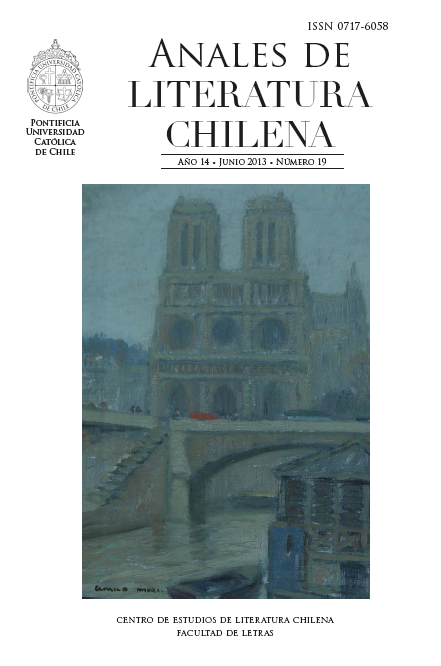Benedicto Chuaqui’s Memorias de un emigrante. (Imágenes y confidencias) (1957): clues about its realistic strategy and the transmission of experience
Keywords:
Migrancy, Realism, Arab-Chilean literature, MemoryAbstract
This article inquires into the ways by which the experience, as defined by Walter Benjamin, is transmitted in the autobiographical narrative Memorias de un emigrante. (Imágenes y confidencias) (1957), by Arab-Chilean writer Benedicto Chuaqui Ketlún. We analyze separately the two parts of the text, and we identify in both a realistic strategy of representation, the particularization. In the second part, Imágenes y confidencias, we conclude that the experience loses its authority when the author, a successful trader, loses contact with the material world behind him. As for the first, Memorias de un emigrante, we conclude that the transmission of the experience of life in Syria loses its authority when particularization, forced to refer to an absent world, tries a realism without matter. If all experience is obsolete (Oyarzún), the failure of Chuaqui is a part of the history of literature considered as a history of these failures.
Downloads
Downloads
Published
How to Cite
Issue
Section
License

This work is licensed under a Creative Commons Attribution-NoDerivatives 4.0 International License.


